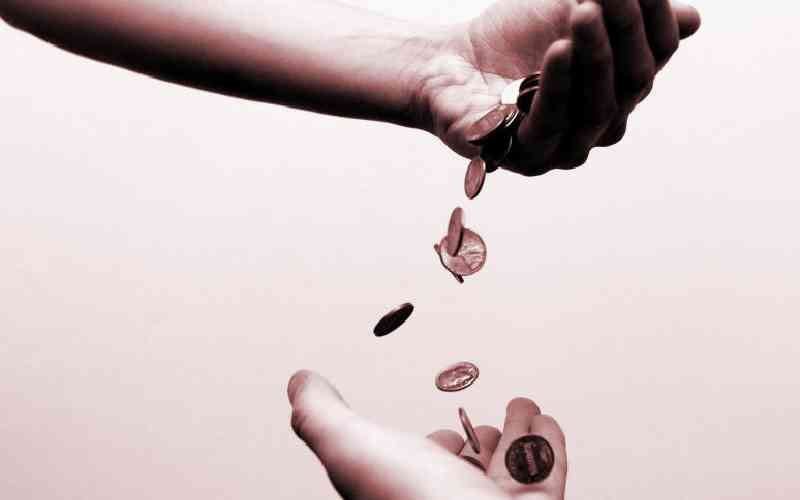By MACHARIA KAMAU
NAIROBI, KENYA: Sugar barons are proving a tough nut to crack for the industry regulator and sector players, with the cartels threatening to deepen the chaos in an industry whose future already looks bleak.
The cartels have in recent weeks illegally brought into the country so much sugar to the point of saturation. The excess commodity comes with the risk of destabilising retail prices.
The rogue traders are doing this by smuggling and dumping products meant for export markets. The cartels are also said to be playing a hand in crippling government-owned sugar millers.
Deep reach
And to demonstrate just how deep the reach of these barons is in the industry, one of the companies suspected of importing sugar illegally is affiliated to an MP who is a member of the Parliamentary committee on Agriculture.
The committee plays a critical role in policing the agriculture sector, including holding State-run agencies to account.
The Kenya Sugar Board has in its past raids confiscated a substantial amount of sugar from one of this company’s premises. The sugar is suspected to have been shipped into the country through questionable means.
During a hearing last Thursday when the committee summoned KSB management to give an update on the status of the industry, the MP acknowledged that the trading company — which among other activities distributes sugar — is run by his family, but said he is not a part of it. He did not go into the details of the alleged illegality of the company’s business dealings in the sugar industry.
KSB, however, said the influx of sugar in the country is under control and the prices are yet to be affected, but warned that the amount available is more than double what is usually consumed.
Kenya consumes about 9,000 tonnes of sugar a week, which is met by a mix of locally produced and imported sugar. Ordinarily, the sugar available on the shelves is usually in this range.
KSB Chief Executive Rose Mkok attributed the influx in supply (was high as 27,000 tonnes at certain points) to illegal imports , but added that her agency, the Agriculture ministry and industry players have met several times to craft a strategy that would ensure the situation does not affect the local industry.
She noted that a reduction in consumer prices that is not backed by fundamentals other than an influx of cheap imports could be disastrous for local producers, as it means they would not be able to recoup their costs.
“There is a glut in the market … it is a crisis,” Mkok told the told the Agriculture parliamentary committee.
Among the measures that industry has taken include scaling down the amount of sugar they are manufacturing.
Stay informed. Subscribe to our newsletter
“We have stepped up surveillance and collaboration with law enforcement agencies to ensure that no illegal sugar finds its way into the market to compound an already disadvantaged position,” Mkok added.
Intense Vetting
“An intense vetting procedure using NSIS has been introduced to do background checks on applicants. This has weeded out a number of wayward traders. [We are also] interrogating all applications for imports.”
The local sugar industry is shaky, with almost all millers reporting losses and some of them in receivership.
Its future also looks bleak with the expected lifting of the protectionist Comesa safeguards in the first quarter of next year. The safeguards have over the last 10 years controlled the supply of sugar imports.
“Kenya remains an attractive destination for imported sugar because of its deficit status, high cost of production and high consumer prices. Indeed, sugar importers peg their price on the high cost of locally produced sugar,” Mkok said.
[email protected]
 The Standard Group Plc is a
multi-media organization with investments in media platforms spanning newspaper
print operations, television, radio broadcasting, digital and online services. The
Standard Group is recognized as a leading multi-media house in Kenya with a key
influence in matters of national and international interest.
The Standard Group Plc is a
multi-media organization with investments in media platforms spanning newspaper
print operations, television, radio broadcasting, digital and online services. The
Standard Group is recognized as a leading multi-media house in Kenya with a key
influence in matters of national and international interest.
 The Standard Group Plc is a
multi-media organization with investments in media platforms spanning newspaper
print operations, television, radio broadcasting, digital and online services. The
Standard Group is recognized as a leading multi-media house in Kenya with a key
influence in matters of national and international interest.
The Standard Group Plc is a
multi-media organization with investments in media platforms spanning newspaper
print operations, television, radio broadcasting, digital and online services. The
Standard Group is recognized as a leading multi-media house in Kenya with a key
influence in matters of national and international interest.




